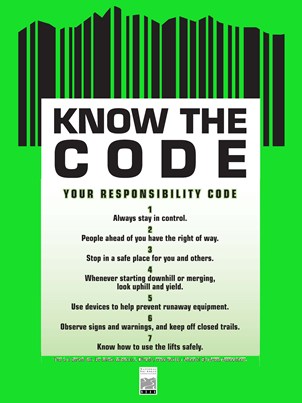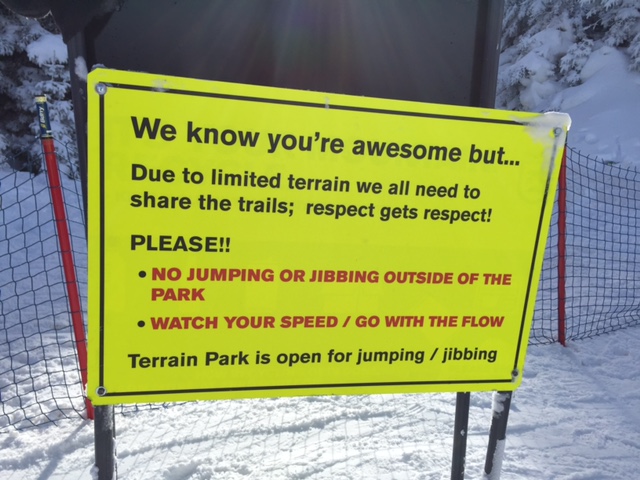There Are No Easy Answers. It Might Hinge On Ski Resort Policy.
Editor Note: Last spring, we received a note from Frank Dolman, a 43-year member of the National Ski Patrol and a long time guide for the Over The Hill Gang at Steamboat. His comment: “Problem—Some owners of ski areas are cutting costs by lowering headcount and hours of the ski patrol. Consequently, reckless behavior can be out of control. Solution—A ‘license’ to ski, based on passing a test on the Skier’s Responsibility Code. License earns discounts, etc., as incentive.”
Our Spring Survey 2016 revealed a lot of comments about controlling speeders. We’re still searching for an answer. This article by John Brown, a 38-year NSP veteran and patrolman at Ragged Mountain, NH, suggests lifting tickets really depends on the policies of the resorts.

Responsible behavior on the snow at times doesn’t seem to be a habit of a lot of skiers/riders today, and many people wonder who is responsible for the development of this go fast and take chances attitude. Is it the ski patrol? Is it area management? Is it equipment that may be too easy to use? Perhaps it’s the “point ‘em downhill and go” approach. And maybe it is a general apathy.
My answer is: “All of the above”.
So what can we do? Bring back and/or bring forward the skier responsibility code! Remember when it was posted everywhere, printed on napkins, the back of your ticket, on brochures and even a billboard or two? Look for it when you get a chance, and let me know where it pops up. Simply adhering to these common sense rules will make the slopes safe.
What should the ski patrol do? Well, first we would have to visit the individual ski area’s policy. Does the area encourage the patrol to be visible? Are there enough patrollers to actually patrol? Or does the patrol have to standby on top and wait to be dispatched?
Should the patrol take tickets away and under what circumstances? First offense? Based on a report? Before we build a long list of offenses, let’s first remember the patrol is not the police, and their primary mission is to keep the area safe and render aid when necessary.
There are various ski area policies that range from marking a ticket/pass to recording the name of a pass holder who has hit someone or otherwise skied/rode recklessly. An informative admonishment can be a valuable tool as well. A ski patrol that is visible can deter the potential speeder or reckless skier.
The ski area has a responsibility to take some sort of action when a report of reckless skiing is made. Whether it is customer service, the ticket counter, ski patrol or ski school, there must be a positive response to each visitor’s concern. You can’t ignore a ski area patron who takes the time to report what they feel is errant behavior which invariably could result in injury or worse, resulting in an unpleasant experience of a customer.
Of course, many people believe the easiest thing to do is to take away the ticket, and most certainly there are occurrences that warrant such action. Consider this though. After driving two hours and paying $80 for a ticket not to mention a $3 bottle of water, should we take away the ticket of someone who may or may not have skied too close to someone? Of course, if there is reason to believe recklessness resulted in injury or complete disregard for safety, then maybe the ticket should be taken. But what about gray-areas? Second-hand reports? Not easy.
Just like the myriad of resorts in North America, the solutions will vary as well. There is one very proactive element that begins with all of us, and it is communication. No one will know there is a problem if it is not reported whether in person, by email, snail mail or by phone, once an area is aware of a concern there is a responsibility to act to make skiing and rider safe for everyone.













Great article JB.
I’m glad you’re still offering your vast knowledge and skills on the slopes in NH. Reading about you brings back good memories.